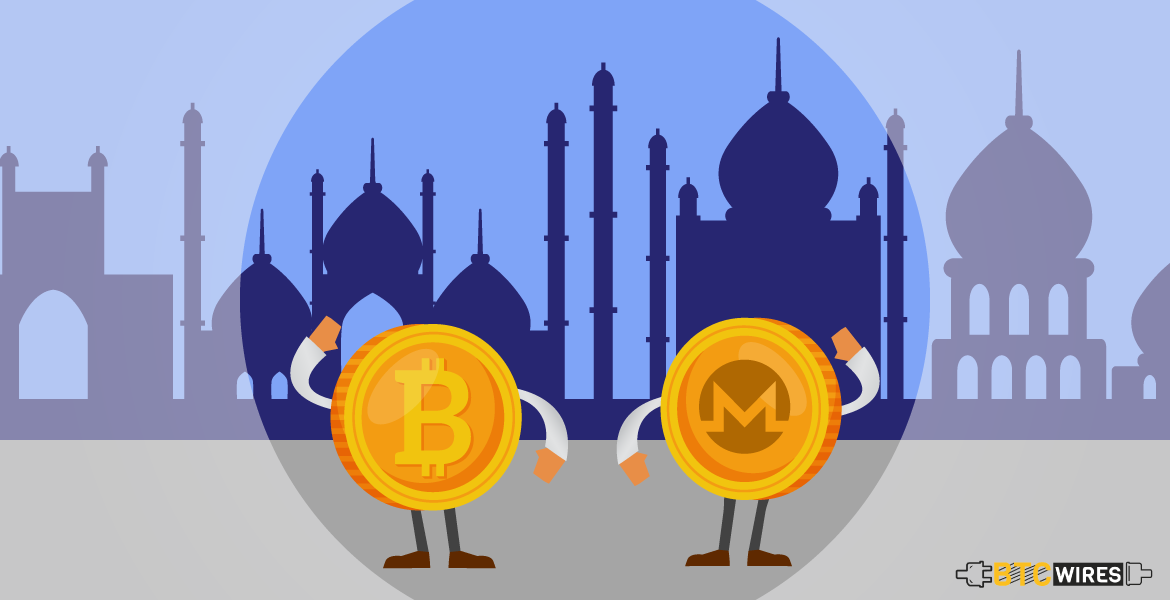There are nearly 10 large crypto exchanges in India with

There are nearly 10 large crypto exchanges in India with the estimated user base of about 5 to 6 million. While it’s still not clear what exactly the Indian government’s move is against the cryptocurrencies, what’s clear is the fact that banning digital currencies in the country is going be a hard nut to crack. This is because cryptocurrencies are not bound by any national jurisdiction. Rather, they are powered by Blockchain Technology which is a decentralized, distributed, and public online ledger used to record transactions.
Last month, the finance minister of India, Arun Jaitley chaired a meeting of officials of the nation’s central bank, the market regulator, and a committee that’s tasked with framing rules to regulate the ecosystem. They are together said to have discussed about banning the use of private cryptocurrencies in India. However, it is anticipated that simply buying, selling and transacting in digital coins will be banned and not their possession.
Well, cryptocurrencies are not based-on a crypto exchange’s wallet since they can be stored on cloud storage platforms such as Dropbox, a private digital wallet or even in a pen drive or a laptop. The Founder, and CEO of an Indian cryptocurrency exchange WazirX, Nischal Shetty explains, “Therefore, even if the government decides to ban the possession, it will be just impossible to implement it.”
Another way the Indian government could prohibit citizens from transacting in digital currencies could be by clamping down on the exchanges and down their shutters forcefully.
But even that might not necessarily be any solution. Shetty said, “The government can successfully ban the known, big exchanges; but then small, hyperlocal exchanges will possibly come up, and it will be tough to keep track of, and block them.”
Apart from that, in case Indian exchanges are shuttered, then a cryptocurrency trader can relocate to any of the several global bourses. However, these are treated as foreign transactions which Indian government has imposed checks and balances on.
Indeed, there are ways to avoid that too. Cryptoinvestors may resort to P2P channels to transfer their investments into the overseas exchanges. Tanvi Ratna, policy counsel at Incrypt, explains, “Once an Indian (citizen) is invested in foreign exchange, it might become impossible for the government to trace his or her investments because most foreign exchanges also allow conversion to private coins which makes transactions untraceable.”
However, the risk element will be very high for such traders. The former deputy governor of the RBI, R Gandhi, said, “As any transaction in crypto will have to be settled in real currency, somewhere the formal system will be able to catch it, especially if a forex dealing is involved.”
Another possible step that the government could take to prevent crypto trade in India is to block the websites of global bourses within the country. But if that happens, then there are ways to circumvent such moves too.
CEO of Elemential, Raunaq Vaisoha, explains, “The government’s motive to curtail the macroeconomic impact of cryptocurrencies can be taken care of to a large extent with a ban, but there are still ways to access the blocked sites by using a VPN (virtual private network).”
